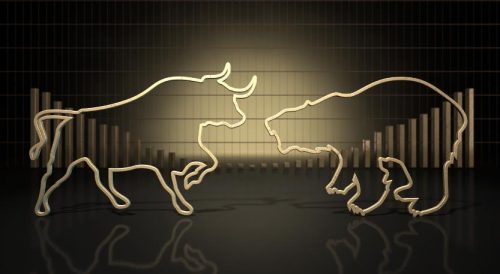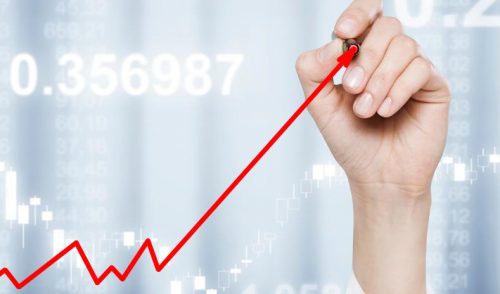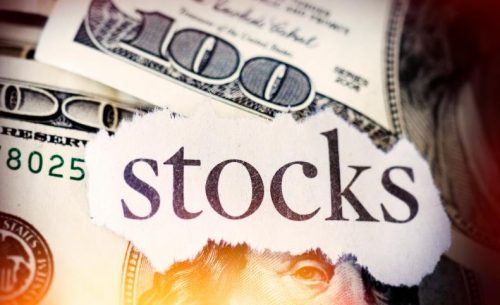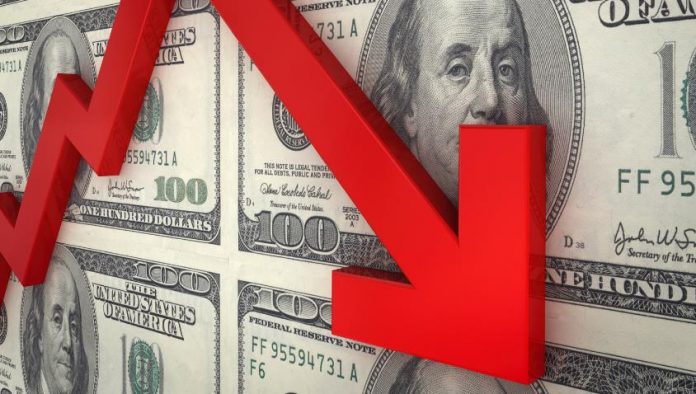In theory, during times of economic distress and falling markets, we should be looking for long-term oversold investments. This is because human nature dictates that many stocks would be oversold in difficult markets, while in bull markets, many stocks will be overbought. However, as soon as markets start to fall, the psychology of individual investors can suddenly change.
While it is never wrong to take a profit, it is vital to appreciate the medium and long-term potential as opposed to the difficult short-term trading period ahead. So, before we look at an array of common biases, we thought it would be helpful to look at the average recession and periods of sustained economic growth. You might be surprised!
Psychology of Investing During Falling Markets
Bull and Bear markets
Markets regularly encounter bouts of rebalancing; when valuations either become stretched or stocks are oversold. However, recession and periods of sustained economic growth tend to have a more significant impact than simple rebalancing.
 Consequently, it might be interesting to take a look at the characteristics of the average recession and periods of economic growth.
Consequently, it might be interesting to take a look at the characteristics of the average recession and periods of economic growth.
A report by Capital Group casts a fascinating light on these compelling investment drivers:-
- The average recession lasts just ten months
- The fall in GDP is around -2.5%
- Average net job losses are circa 3.9 million
If you compare this to the average period of economic expansion, it will put everything into perspective:-
- The average economic growth period is 69 months
- The increase in GDP is around 24.6%
- Net job gains over the period average 12 million
It is perfectly understandable to be concerned about falling markets and challenging economic times, but these figures demonstrate the impact of recession and periods of economic growth. As periods of economic growth average around seven times that of recession, it makes sense to focus on the longer term.
The psychological effect of falling markets
Akin to the performance of your favourite sports team, when results are going in your favour, you can’t see a loss on the horizon. However, once things become a little tricky and your team gets into a losing streak, you can’t see where the next win is coming from. There is a similar impact on investor psychology in times of falling markets.
We will now look at an array of common biases that can emerge during times of stock market volatility.
Confirmation bias
To a certain extent, the majority of investors will, at some stage, be driven by confirmation bias. This is that occasion where you seek information and views to support a predetermined position in your mind. For example, you may wish to go long on a particular stock even though you know that the valuation is somewhat stretched. Often ignoring unsupportive research, there is a temptation to focus on that one research note which fits your agenda. This is confirmation bias.
During falling markets, confirmation bias can very often be the driver behind the temptation to sell up and buy back lower down.
 In theory, this is a perfectly plausible investment strategy; in practice, it rarely works. To avoid a potential short-term dip in your investment portfolio, is it worth the pressure of selling up and then not knowing when to get back in?
In theory, this is a perfectly plausible investment strategy; in practice, it rarely works. To avoid a potential short-term dip in your investment portfolio, is it worth the pressure of selling up and then not knowing when to get back in?
There is nothing wrong in facing and considering the theory of confirmation bias, but it is essential to consider the medium and long-term scenarios.
Information bias
Finding a balance between a lack of information and too much information brings into play information bias. The financial industry is one of the most lucrative in the world, attracting many different information channels. It is very easy to be influenced by information that is irrelevant to your situation or investment portfolio. We often only need to see the headlines of an article or a research note to trigger a reaction.
For example, if you were a short-term trader, the nine-day, 38-day and 90-day moving averages on a stock price graph could be crucial. Should the impact of these trend indicators be as influential on someone investing money on a long-term basis, potentially 20 years plus? The short-term trend may change even if the company’s fundamentals remain unchanged. Is this relevant to a long-term holder?
This is the concept of information bias, considering information and views irrelevant to your investment strategy.
Loss aversion/endowment effect
Loss aversion and the endowment effect are two sides of the same coin and can be very influential in investment. Research has shown time and time again that investors would rather avoid losing money than make money. Consequently, in falling markets, there is a tendency for investors to avoid losses rather than looking longer term and potentially significant gains. Therefore, it may be an idea to use stop-loss limits to control loss aversion. While the stop-loss limit may be triggered by a considerable fall, relatively small but volatile movements would not have the same effect.
The endowment effect is a fascinating bias because it is something that all of us will experience, perhaps regularly. It is the idea that an asset you have acquired is worth more in your mind simply because you own it.
 Whether this is part ego, part stubborn or a genuine belief that you know better than the market, it can sometimes be unhealthy. In some ways, this can be linked to confirmation bias, where you look for reasons to enhance the value of an asset.
Whether this is part ego, part stubborn or a genuine belief that you know better than the market, it can sometimes be unhealthy. In some ways, this can be linked to confirmation bias, where you look for reasons to enhance the value of an asset.
The most obvious case of the endowment effect is where the fundamentals of an individual stock have changed, but you refuse to recognise this. You still believe that your valuation and assessment are correct and the market is wrong. This may stop you from taking losses or, in a worst-case scenario, continuing to invest when the share price is falling. If you think of stock markets as information exchanges, each trade offers a different view that will influence the share price to a certain extent. Markets interpret these different “views” to arrive at a balanced value, and while not always right, they are rarely wrong.
Incentive-caused bias
Many of us will experience incentive-caused bias in our everyday life, whether shopping at our local supermarket or looking to buy a new car. This type of bias tends to show in the form of financial discounts or another incentive to buy. It could be something as simple as a buy one get one free offer or free car maintenance for 12 months. Unfortunately, it is very easy to get blinded by the incentives and ignore the underlying value for money.
The best example of incentive-caused bias in the investment world is a company that offers an above-average dividend yield. This is traditionally a trade-off between reduced growth in the future and the receipt of above-average dividend income. This type of investment is helpful for balanced portfolios and those seeking income. However, there may be occasions when a company is experiencing difficult trading and struggling to maintain dividends.
Unless trading were to improve, the company would need to reduce or pass on a dividend at some point. This would remove a potential incentive for income investors and transfer more focus onto the underlying valuation and company trading.
Oversimplification tendency
As investors, we tend to oversimplify complicated issues we need to understand fully. This type of bias can come to the surface during times of volatile markets and economic challenges. If markets fall, surely we must follow suit and sell up?
This avoids various questions, such as why markets are volatile, why the economy is struggling, and, more importantly, why you should look to change your investments. It is essential to understand how stock markets work to avoid the downside of oversimplification. For example, there is a consensus that market valuations today consider expectations for the next 6 to 9 months. This consensus does not always match current news headlines and comments about impending economic doom and gloom.
 In theory, stock markets will react to potential recessionary pressures between six and nine months before a recession. This is because of a time lag between a changing economic environment and a fall in GDP and economic output. So, if an investor was to react to current news of a recession, the chances are that this has already been factored into market valuations. To the broader public and businesses, the recession may just be starting, but stock markets are already looking towards the end of the recession and the recovery phase.
In theory, stock markets will react to potential recessionary pressures between six and nine months before a recession. This is because of a time lag between a changing economic environment and a fall in GDP and economic output. So, if an investor was to react to current news of a recession, the chances are that this has already been factored into market valuations. To the broader public and businesses, the recession may just be starting, but stock markets are already looking towards the end of the recession and the recovery phase.
Therefore, when you see economic data confirming a recession, it oversimplifies the situation to suggest that markets move in tandem with real-time events. Instead, markets look forward, basing valuations on known factors/forecasts, although there is still scope for surprises.
Hindsight bias
While artificial intelligence trading programs have various pros and cons, one of the pros is a lack of hindsight bias. These programs work on cold hard facts and figures, although some have now been programmed to accommodate expected human actions. Hindsight bias is something which tends to grow in strength over time. It is very easy to convince yourself that you accurately predicted an event or movement in a share price before it occurred. This phenomenon tends to ignore reality, and sometimes timescales can be blurred. However, falling markets can lead to an investor growing in confidence, believing they can sell on the way down and buy back at the bottom.
It may well be that investors have learned from their mistakes; they have predicted share price movements and, on paper, created a lucrative return. However, creating this solid underlying belief that you can predict the future can be dangerous in many cases. As a consequence of a “blurred” success in years gone by, you may project this belief into different areas of your life. While being confident in your investment decisions is essential, overconfidence can lead to you taking undue risks and encountering significant losses.
Bandwagon effect (or groupthink)
Whether stock markets rise or fall, you won’t need to go far to encounter the bandwagon effect. Often referred to as group thinking, these are situations where leaders take specific decisions, others follow, and very quickly, this becomes a herd, a self-fulfilling prophecy. Similarly to the natural world, many people feel safe within the herd and will ultimately join. This has been seen numerous times in stock markets.
Those moments when markets are falling, but some analysts are reluctant to call the end of the bull market. Determined to take a contrarian approach, think differently from the herd, they will stick to their guns as long as possible. Then, eventually, under pressure from investors, others in their group and markets in general, they will cave in.
 They will switch their positive outlook to a more negative approach, calling the end of the bull market and the start of the bear market. This is best reflected in the saying, “it is darkest before the dawn”. As the lonely standout lights – analysts still maintaining a positive approach – slowly switch to the dark side, we reach total darkness. History shows that this point can be the lowest in market fluctuations, the final sell-off before the eventual recovery.
They will switch their positive outlook to a more negative approach, calling the end of the bull market and the start of the bear market. This is best reflected in the saying, “it is darkest before the dawn”. As the lonely standout lights – analysts still maintaining a positive approach – slowly switch to the dark side, we reach total darkness. History shows that this point can be the lowest in market fluctuations, the final sell-off before the eventual recovery.
While there is nothing wrong in appreciating and considering the bandwagon effect/group thinking, these opinions may be on a different timescale to yours. While it can be challenging to maintain your long-term positivity while others portray doom and gloom in the short term, don’t feel pressured to adjust your investments for the sake of it.
Restraint bias
Humans are by their very nature prone to impulsive behaviour, whether this is with investments or something as simple as food shopping at the supermarket. At times, this impulsive behaviour may prove correct and potentially lucrative. Unfortunately, on far too many occasions, at some point, buyers will experience so-called buyer’s remorse. Why did they jump in so quickly? Why didn’t they step back and consider things in more detail?
Restraint bias is a potentially dangerous situation where an individual overestimates their ability to control natural impulsive behaviour. The fact that they believe this “can’t happen to them” can make them more susceptible to impulse activity. We have seen many investors panic selling as markets fall, analysts predict doom and gloom, and the short-term situation looks challenging.
In hindsight, had they been able to look beyond the short-term challenges, they may have seen medium to long-term benefits and opportunities to buy “cheap” stock. When it comes to stocks and shares, there is one straightforward question you can ask yourself to control restraint bias:-
Would you buy the stock today?
 If the answer is yes, then you should consider holding for the long term and maybe even increasing your exposure. On the other hand, if you are neutral, it may be sensible to take a wait and see approach. Alternatively, it may be time to sell/reduce your exposure if you have turned negative on the stock. Simply asking this question gives you time to think, reduce that impulsive draw, and take a considered decision.
If the answer is yes, then you should consider holding for the long term and maybe even increasing your exposure. On the other hand, if you are neutral, it may be sensible to take a wait and see approach. Alternatively, it may be time to sell/reduce your exposure if you have turned negative on the stock. Simply asking this question gives you time to think, reduce that impulsive draw, and take a considered decision.
Summary
When reviewing and monitoring your investments during a falling market, there are many issues to consider. Typical human nature tends to make us more reactive than proactive, prone to rash decisions which we may regret further down the line. However, just as it is never wrong to take a profit, it can still be advantageous to go through the various psychological challenges in falling markets. Anything which makes you consider and rationalise your position, looking at things in the cold light of day, can only be beneficial.
Many of us will face some of the challenges mentioned above in our everyday lives and financial dealings. It is vital to keep a clear head, look at cold hard facts and not oversimplify relatively complicated scenarios. The fact that the average recession lasts just 1/7th of the average period of economic prosperity says everything. However, there is one proviso, no two scenarios are ever the same, and, like the Covid-19 pandemic, some events are once-in-a-lifetime.
We will finish with some wise words from Warren Buffett:-
“I will tell you how to become rich. Close the doors. Be fearful when others are greedy. Be greedy when others are fearful.”
Get in touch
If you’d like to know more about this article, or how you can invest wisely to guarantee a better future for yourself and your loved ones, get in touch today.
It costs nothing to have a conversation, and it could be one that changes your life.


































